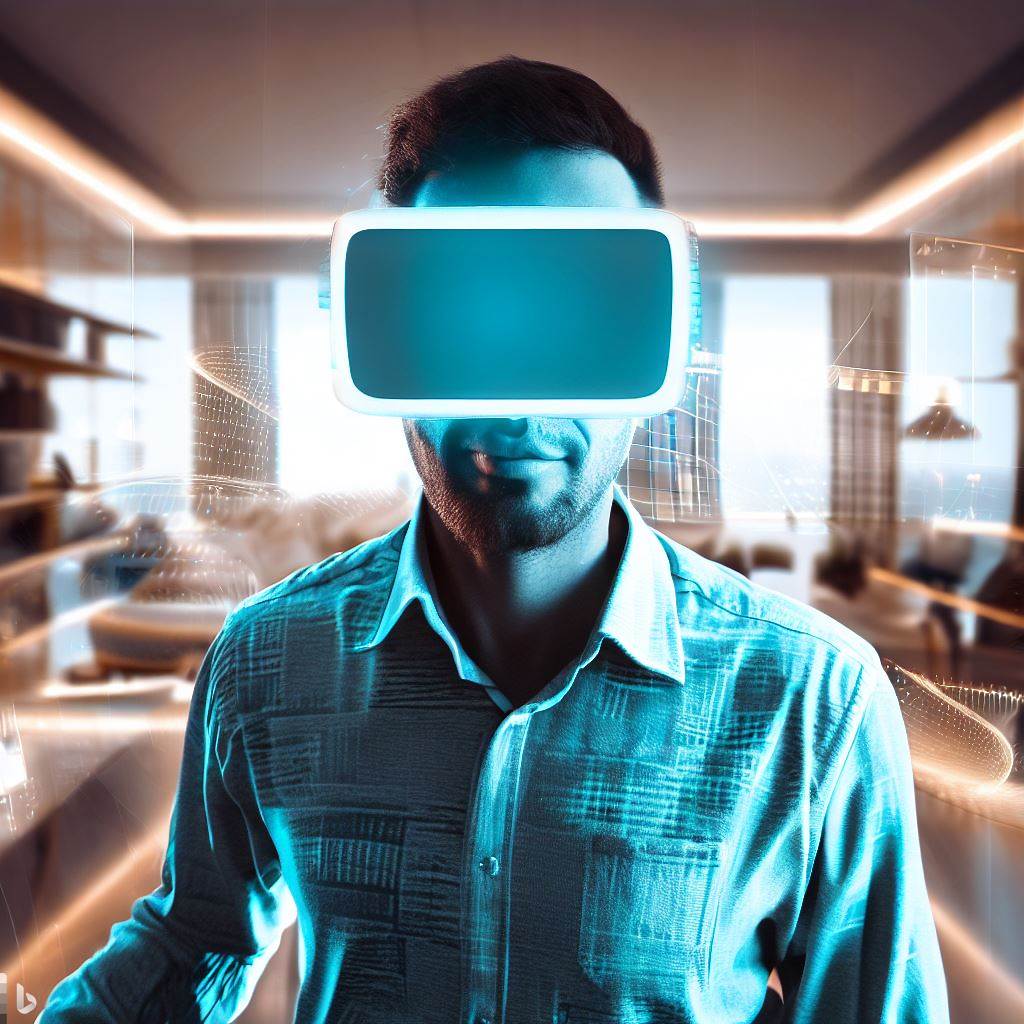Introduction
The impact of technology on interior design in Nigeria is a topic of significant relevance.
Technology has become increasingly important in the field of interior design, revolutionizing the way designers create and present their work.
This blog section aims to explore the importance of technology in interior design in Nigeria and discuss the various ways it has influenced the industry.
Transitioning to the body of the blog post, we will delve into specific examples of how technology has transformed different aspects of interior design, including visualization tools, virtual reality, and online platforms.
By exploring these advancements, we can gain a better understanding of how technology has enhanced the design process, improved client collaboration, and expanded the reach of interior designers in Nigeria.
Stay tuned for an insightful exploration of the impact of technology on interior design in Nigeria.
Evolution of Interior Design in Nigeria
In Nigeria, interior design has undergone significant changes with the introduction of technology into the design processes.
Overview of Traditional Interior Design Practices in Nigeria
- Traditional interior design in Nigeria was primarily influenced by cultural practices and beliefs.
- It involved the use of local materials, intricate craftsmanship, and traditional motifs.
- Spaces were designed to reflect the traditions, values, and social structures of the Nigerian communities.
- Handmade furniture, fabrics, and accessories were commonly used to decorate homes and public spaces.
- The design process relied heavily on manual labor and expertise, passed down through generations.
Introduction of Technology into Interior Design Processes
- The arrival of technology in Nigeria has revolutionized the interior design industry.
- Designers now have access to a wide range of software, tools, and equipment to enhance their creative process.
- Computer-aided design (CAD) software allows for precise floor plans, 3D visualizations, and virtual walkthroughs.
- Interior designers can now create digital mood boards, select color palettes, and simulate lighting effects.
- Technology has also simplified sourcing and procurement processes, enabling designers to access a global marketplace.
- Online platforms and social media have provided avenues for designers to showcase their work and connect with clients.
Beliefs and Attitudes Towards Technology in the Industry
- While technology has brought about numerous advantages, there are varying beliefs and attitudes towards its use in Nigerian interior design.
- Some designers embrace and fully integrate technology into their processes, recognizing its ability to improve efficiency and enhance creativity.
- Others, particularly those rooted in traditional practices, may be hesitant to adopt technology, fearing it will diminish the cultural and human touch in their designs.
- However, there is a growing understanding that technology can be seamlessly combined with traditional elements to create unique design expressions.
- Education and awareness programs are being implemented to promote the positive effects of technology in interior design.
- Designers are encouraged to embrace technology’s potential while preserving cultural heritage and promoting sustainable practices.
Therefore, the evolution of interior design in Nigeria has been greatly influenced by the introduction of technology.
Traditional practices have been enriched with digital tools and platforms, allowing for more precise and creative design solutions.
While there may be concerns about the impact of technology on cultural authenticity, there is a growing acceptance that it can enhance rather than diminish the essence of Nigerian interior design.
By striking a balance between tradition and technology designers can create spaces that reflect the cultural heritage of Nigeria while integrating contemporary influences.
Read: Famous Nigerian Interior Designers: Profiles and Achievements
Role of Technology in Interior Design
Technology has significantly revolutionized the field of interior design in Nigeria, bringing about numerous benefits and opportunities for designers.
Let’s explore some of the ways in which technology has impacted interior design:
- Technology revolutionizes interior design in Nigeria: Advanced software empowers designers for effective concept visualization. Experimentation thrives with diverse colors, textures, and layouts for optimal solutions.
- 3D modeling and virtual reality replace 2D sketches: Nigerian designers craft realistic digital portrayals, enabling immersive pre-construction exploration, boosting comprehension and satisfaction.
- Smart home integration trends surge: Nigerian designers adopt automation, elevating lighting, security, and comfort, enhancing energy efficiency and functionality.
- Tech tools amplify communication and collaboration: Online platforms, video conferencing, project management software streamline interactions. Stakeholders synchronize, enabling swift adjustments for seamless design evolution.
In review, technology has had a profound impact on the interior design industry in Nigeria.
From aiding in design conceptualization and visualization to the integration of smart home technology, the benefits brought about by technology are undeniable.
As Nigerian designers continue to embrace and leverage technological advancements, we can expect further innovation and improvement in the field of interior design.
Read: Work Life Balance Tips for Network Architects in Nigeria.
Adaptation Challenges and Opportunities
Technology has brought about significant changes in the field of interior design in Nigeria.
While these advancements have opened up new possibilities, they also present challenges and opportunities for industry professionals.
Resistance to Change within the Industry
- Traditional interior designers may resist embracing technology due to a fear of change.
- Some professionals may feel overwhelmed by the rapid pace of technological advancements.
- Reluctance to adapt to new tools and techniques can hinder growth and innovation in the industry.
Training and Upskilling Designers for Technology Integration
- Designers need to constantly update their skills to effectively integrate technology into their work.
- Training programs and workshops can bridge the gap between traditional and tech-savvy designers.
- Learning new software and tools can enhance designers’ abilities to meet client expectations.
Opportunities for Creativity and Innovation Through Technology
- Technology offers designers new avenues for creativity and innovation in their work.
- Virtual reality (VR) allows clients to experience designs in a realistic and immersive way.
- Augmented reality (AR) enables designers to overlay digital elements onto physical spaces.
- 3D modeling software helps visualize designs and make changes easily before implementation.
Increased Efficiency and Productivity in Design Processes
- Technology streamlines various aspects of interior design, enhancing efficiency.
- Computer-aided design (CAD) software speeds up the creation and modification of design plans.
- Project management tools facilitate collaboration and communication among team members.
- Digital platforms enable designers to source materials, furniture, and decor more efficiently.
In fact, while the impact of technology on interior design in Nigeria brings about its own set of challenges, it also provides numerous opportunities for growth and innovation.
Designers must overcome resistance to change, embrace continuous learning, and leverage technology to enhance creativity, efficiency, and productivity in their work.
Read: UI/UX Design Training: Top Courses in Nigeria

Gain More Insights: Nigeria’s Design Industry: Challenges and How to Overcome Them
Technological Innovations in Interior Design
Technology shapes Nigeria’s interior design industry: Advancements include digital software, furniture robotics, and sustainable solutions.
Digital design software empowers designers with realistic renderings, precision, and creativity.
Furniture production embraces robotics, automating tasks, enhancing efficiency, and customization.
Sustainability surges: Eco-friendly materials, and energy-efficient lighting create greener, more aesthetic spaces.
Virtual Reality (VR) and Augmented Reality (AR) elevate client experiences through immersive pre-implementation visualization.
This fosters informed decisions, feedback, and collaboration, boosting satisfaction.
Tech innovations reshape interior design, fostering creativity, client engagement, and sustainability in Nigeria’s evolving landscape.
Read: Skills Every Nigerian Network Architect Should Have
Impacts on Designers and Clients
Technology has had various positive impacts on both interior designers and clients in Nigeria.
- Evolving interior design demands: Technology reshapes roles, requiring proficiency in 3D modeling, VR, and CAD, and staying tech-savvy.
- Tech-driven experiences benefit clients: VR and AR enable accurate project visualization, fostering satisfaction and trust.
- Efficiency gains through technology: Streamlined processes, precise plans, and access to resources reduced time and costs.
- Enhanced client engagement: Realistic 3D visuals encourage feedback, leading to refined designs, and meeting expectations.
Technology ensures clear communication, and collaboration, minimizing errors, and ensuring successful project delivery in interior design.
Lastly, the impact of technology on interior design in Nigeria has been substantial for both designers and clients.
It has transformed the role of designers, enhanced client experiences, increased cost-effectiveness, and improved project outcomes.
Embracing technology in the field of interior design is crucial for staying relevant and delivering exceptional results in today’s digital landscape.
Conclusion
Technology has had a significant impact on interior design in Nigeria.
From the use of 3D modeling and virtual reality to the incorporation of smart home technology, designers have been able to create more immersive and interactive experiences for their clients.
Technology has also made the design process more efficient, enabling designers to easily experiment with different materials, colors, and layouts.
This has resulted in quicker turnaround times and improved client satisfaction.
Looking ahead, the future of technology in the interior design industry looks promising.
As new innovations continue to emerge, designers will have even more tools at their disposal to push the boundaries of creativity and functionality.
It is important for interior designers in Nigeria to embrace and further explore the integration of technology in their practice.
By staying up-to-date with the latest advancements and continuously honing their skills, designers can stay competitive in an ever-evolving industry.
Furthermore, clients also stand to benefit from the continued integration of technology in interior design.
They can expect more personalized and realistic design proposals, enhanced communication throughout the design process, and ultimately, spaces that better cater to their needs and preferences.
It is an exciting time to be a part of the interior design industry in Nigeria, as technology continues to revolutionize the way spaces are designed and experienced.




